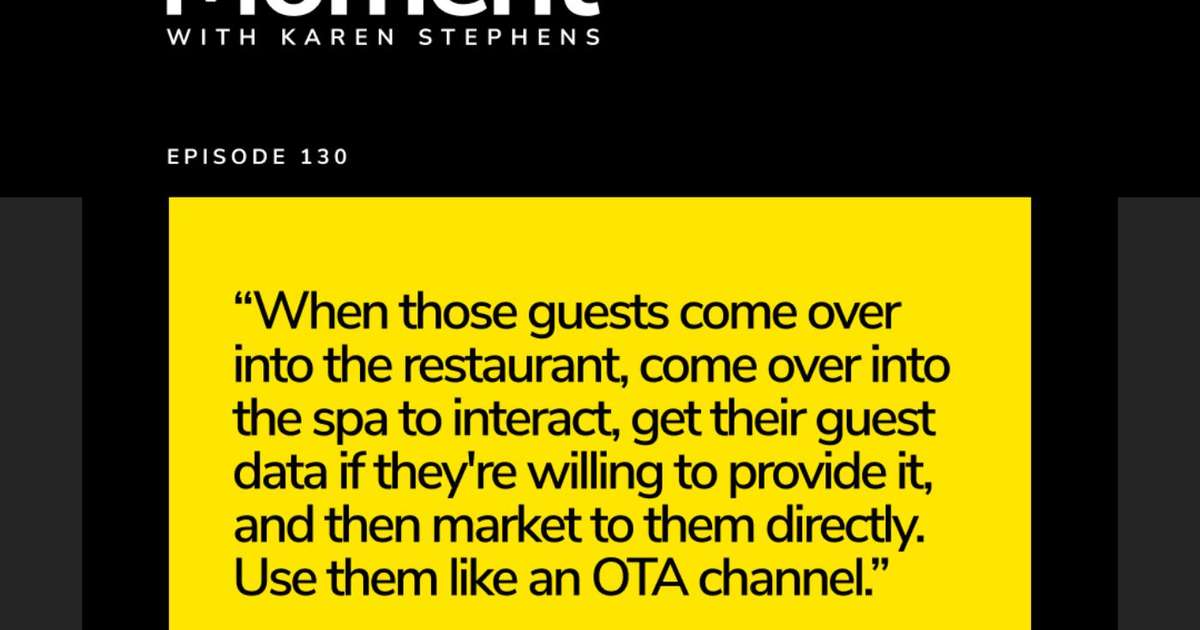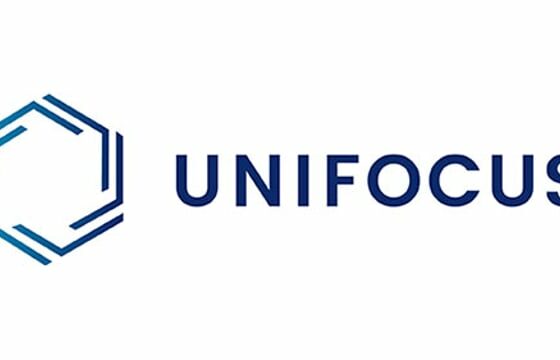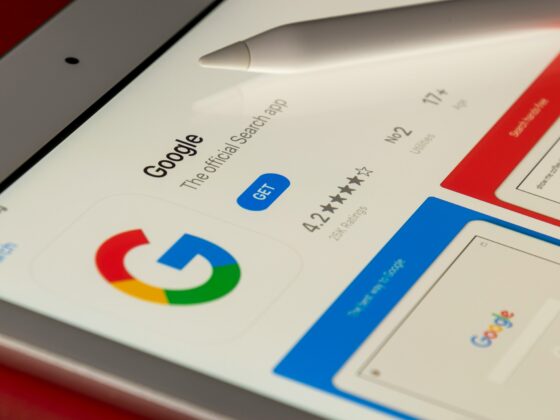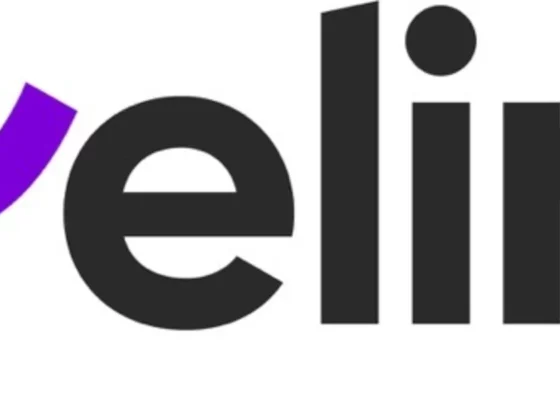
In this week’s episode of Hotel Moment, Sims Foster, co-founder of Foster Supply Hospitality, joins Revinate CMO Karen Stephens for a lesson on brand building and why hoteliers should see their rooms as more than “just four walls.” Sims also shows how one hotelier can do so much good in the local community — serving guests as well as those in need.
Sims also discusses his operational framework, specifically in regards to how he and his team approach short-term rental competition to encourage guests to experience a hotel stay, rather than another accommodation that claims to offer all the same amenities.
Tune in to discover the beauty of building a brand and how to creatively market to guests so they choose you over the competition.
Meet your host
As Chief Marketing Officer at Revinate, Karen Stephens is focused on driving long-term growth by building Revinate’s brand equity, product marketing, and customer acquisition strategies. Her deep connections with hospitality industry leaders play a key role in crafting strategic partnerships.
Karen is also the host of The Hotel Moment Podcast, where she interviews top players in the hospitality industry. Karen has been with Revinate for over 11 years, leading Revinate’s global GTM teams. Her most recent transition was from Chief Revenue Officer, where she led the team in their highest booking quarter to date in Q4 2023.
Karen has more than 25 years of expertise in global hospitality technology and online distribution — including managing global accounts in travel and hospitality organizations such as Travelocity and lastminute.com
Watch the video
Transcript
Sims Foster- 00:00:00: As much as you can brand your short-term rental and create this thing, and it feels good when you check in, it’s still an empty house as far as human beings.
Intro – 00:00:14: Welcome to the Hotel Moment Podcast presented by Revinate, the podcast where we discuss how hotel technology shapes every moment of the hotelier’s experience. Tune in as we explore the cutting-edge technology transforming the hospitality industry and hear from experts and visionaries shaping the future of guest experiences. Whether you’re a hotelier or a tech enthusiast, you’re in the right place. Let’s dive in and discover how we can elevate the art of hospitality together.
Karen Stephens – 00:00:42: Hello and welcome to the Hotel Moment Podcast. I am your host, Karen Stephens, Chief Marketing Officer of Revinate. And today we’re excited to speak with Sims Foster, co-founder of Foster Supply Hospitality, a hospitality brand focused on creating unique experience in the beautiful Catskills region. With a career spanning multiple roles in restaurant and hospitality industries, Sims has an extensive background in building lifestyle brands. His entrepreneurial journey has led him to launch Foster Supply alongside his wife, Kirsten, combining his love for the region with his vast industry expertise. So listeners, you’re really in for a treat when you hear Sims today. So I think it’s wonderful for me when I get to speak with people who have the heart and the love for what they do, and they give that back to the community. So I don’t want to spoil the episode by going too deep on that, but I’ll just say I think you can hear when Sims speaks how much he cares about the region he’s from, the hotel experience he provides, the restaurant experience that they provide, and also how he gives back to the local community. So here you go. I give you Sims Foster. Sims Foster, welcome to the podcast. It’s a pleasure to have you here.
Sims Foster – 00:01:52: Karen, great to be here. Thanks for having me.
Karen Stephens – 00:01:55: Absolutely. You know what? I had a great time doing a little research before we jumped on this call. So I’d love to just start with, just tell us a little bit about your company. What is Foster Supply Hospitality, and why did you choose the Catskills?
Sims Foster – 00:02:08: Two very good questions. The second one is the easiest one. I chose the Catskills because it’s home. I was born and raised in a small town called Livingston Manor. And my family has been here for over 100 years. So this was a moment of taking what I had hopefully learned in the larger world and bringing it home to the place that matters most to me and to my wife and co-founder, Kirsten. Even though she’s not from the area herself, she loves it just as much, maybe even more sometimes than I do, which is saying a lot. So there’s that. And then Foster Supply Hospitality is a group of small hotels and restaurants that we have been developing and operating. We own and operate and we’ve done seven of them. We currently have four. We did sell three of them recently, which is a good success. And then we’ve got several in development. So that’s what we are. The reason, the why behind it was really trying to prove and fall back in love with hospitality on a small scale where you’ve got a 12-room or a 15-room or a 30-room hotel and really getting back to taking care of people and taking care of our guests, which after being an executive with some larger hotel management companies, which is a great different experience, this was a counterbalance to that, and doing it in a place where we thought we could really make a difference.
Karen Stephens – 00:03:37: That’s a great story. So you’ve had a really diverse career. I’d love to talk a little bit about how you got into the industry. So you started washing dishes. Can you tell us about that story? How you got into hospitality, and also restaurants is a big thing for you. So let’s start there.
Sims Foster – 00:03:52: Sure. Yeah. Lied when I was 13, until I was 14, to get the dishwasher job, which I thought was the coolest thing ever. My brother trained me in the dish pit so that he could move out front to the front of house. So I was being encouraged from that side, too. He was done washing, cleaning out the slow cooker from Prime Rib Night. But yeah, then worked my way through all different parts of the restaurant business. And ultimately, after college, moved to New York City and then got a job. First as a maintenance man, because I needed money to pay the rent at a nightclub, and then ended up a couple of years later being the general manager of a well-known kind of celebrity hangout nightclub in the meatpacking district called Lotus. And then that really started my quote-unquote professional hospitality career, which took me from nightlife into restaurants and into hotels. And at the same time, concurrently, also we’re doing some small-scale stuff back home up here in the Catskills as a side project. So that’s kind of how that all came together.
Karen Stephens – 00:04:53: Okay. And now restaurants also play a big part into your company and into the brand. So you talked to us a little bit, you mentioned kind of the hotels are smaller, more lifestyle brand. Talk to us a little bit about how the food experience incorporates into that as well.
Sims Foster – 00:05:08: Yeah, I think it incorporates in a critical way. The idea when we started to renovate and build these small hotels was they still needed to be full service because in the rural environment, and especially at the time that the area was in, there actually wasn’t a lot. We weren’t able to say, come here and then here’s 20 places for you to go. So we really needed to control and really create a narrative and a story about all of these like full-scale little resorts where… Yeah, you can get a massage because we have a treatment room and you’ve got a restaurant on site and you’ve got hiking trails. While we allowed the area, which gratefully now there’s plenty of restaurants on our main streets that we can send guests to, but we really needed to create a full narrative in order to compel people to come in the beginning. On top of that, we’re pretty good. We think at the restaurant business, we are James Beard-nominated restaurateurs. And so it’s a part that some days I wonder, but when it’s right, it’s great. Just the restaurant business, it’s a day-to-day thing, even more than a hotel, because it’s very hard to predict what’s going to happen in any given day at a restaurant. Hotel, you can kind of figure it out in advance, but we love it. We do it. We’ve got fantastic teams and some great chefs that have been with us now. One of our chefs, Clark Hoskins, has been with us 10 years in the beginning. And so that’s the key to the restaurant part of this is the stability.
Karen Stephens – 00:06:36: That’s great. So you mentioned that in the Catskills itself, there’s been a lot of new entrants with restaurants and other things. I’m just curious. I don’t know a lot about the area. Is that something that kind of happened after COVID or you’ve lived there, you grew up there, your family’s there. So can you tell us a little bit about the area itself and how it’s changed over the last couple of years?
Sims Foster – 00:06:55: Yeah, I’ll go back a little further. Sullivan County, where we are in 1960, had the most hotel rooms of any county in the United States. It was, for those that don’t know the area, the kind of cheap and easy reference is Dirty Dancing. Dirty Dancing was set here in Sullivan County. So if you’ve seen the movie, that’s actually fairly real, except for the Patrick Swayze dancing on the log thing. I can’t. But my grandparents worked in hotels. My dad was a bellhop. And so it was a booming tourist destination and iconic. And then it all collapsed. So within a matter of 15 to 20 years, the whole market disintegrated, which is a whole other story that somebody needs to tell. And so when I was growing up here, it was kind of the ghosts of these hotels and the ghosts of an economy that was robust, that had fallen down, right? It was the typical rural environment that had one thing going for it. And when that disappeared, it really struggled to find its stability. So that’s the history of the area. What happened was there were some starts, fits and starts. But right around kind of the mid-2000s was this new start of people identifying the area. Second homeowner increased. Main Street started to come back. 07, 08, of course, kind of put a damper on it. But really, it was starting to come back before COVID. And it was really kind of creating a new brand for a new generation. And so it was on its way. And then COVID had the… Had an accelerating effect. Not that we didn’t have our extreme struggles like everyone else, but having rural environments, small hotels was on the, I guess, the fortunate side of the economy in that era. But I think it helped accelerate it. And now it’s finding its kind of new stabilization rate, but real estate values are up in the area. They were depressed for a long time. They’re up. And now our main streets are really lovely. I mean, part of the beauty of the area is that because nothing happened here for, call it a generation, there is this amazing throwback feel to the main streets. There’s no corporate anything. There’s no Walmart on the outside of town. And I’m not even being judgmental about that. I’m just saying, if you go to Livingston Manor or Jeffersonville or Callicoon, these little main streets, the stores are all new, but the feel could be the same as 50 years ago. And I think that’s really resonating, especially with the Metro New York guests that comes with the majority of our guests.
Karen Stephens – 00:09:28: How far is it from New York City?
Sims Foster – 00:09:29: It’s two hours.
Karen Stephens – 00:09:31: Two hours. Okay, so easy peasy. And I love the idea of the nostalgic. That’s something that I really love when you go to communities, and it’s like this restaurant’s been here since 1970, whatever, it’s got that vibe and that feel. So that’s really cool. So you mentioned that real estate values have gone up and I think that that’s true for a lot of rural areas. COVID, people were trying to get out of big cities. Short-term rentals are also something that’s come up. So can you talk to us a little bit about how that’s changed the hospitality landscape for your brand and how it’s impacting the guests in the area and the values in the area?
Sims Foster – 00:10:05: Yeah, a lot to unpack there. So I believe the stat is that over the last five years, the increase in short-term rentals is, I think, 6x in the county. Of that is that it started from not many So that inventory has increased dramatically. And as we all know in the industry, it’s an unregulated one key hotel industry is how I call it, right? Is that you can buy a house and within 24 hours, all of a sudden you can be renting it without the parts that if you’re a commercial hotel that you, the DOH, and the Department of Transportation, and all the stuff that you have to go through and the planning boards and all of those things. And I think that’s going to be interesting to see how that plays out long-term. I think every community is dealing with it from what I hear almost across the country. But the short-term rental increase was critical to expedite fast growth for these Main Street businesses we were just talking about. All of a sudden, overnight, there’s more people here. And that’s a good part of the equation. It helped and they’re having good experiences. And so it just really helped put, really fuel the flames of what was already started. From a business standpoint, we’re now not just competing with other hotels, but with this market that acts differently. So we’ve been trying to figure out, A, how serious it is for our business, what the long-term plan is, how we try to figure out how to compete. Because the short-term rental owner doesn’t have the overhead of our business. And frankly, most of them are just kind of happy to kind of collect whatever ADR they can get because they’re not using the house. Not intentionally, but they’re now really affecting ADRs and occupancies. And they don’t even know what those two words mean. They’re just talking about a house and they’re trying to offset their mortgage costs. I get it. So it’s an interesting play.
Karen Stephens – 00:11:58: Yeah. And I think that you mentioned before you have spa on site, amenities, local experiences. And I think for me as a consumer, if you’re trying to market to me as opposed to going into an Airbnb, that is what is really going to resonate with me is it really is a holiday experience. So do you do that? I mean, I saw your website, which is beautiful. I recommend. I mean, already your website gives off that, you know, I’m a marketer, so that website gives off that feel of like, oh, wow, this is really kind of a home away from home in the woods and that. But how do you think about that when you leverage marketing assets to drive bookings?
Sims Foster – 00:12:33: Yeah. I mean, what we’re trying to do is continue to tell the story of each of our property, of the area, and why you should come to the Catskills and not just support us, but support all the communities, which is what we’re about truly. And then I guess the benefit of staying in a hotel with those amenities and what that experience is, and why that might be better for you than the short-term rental for this particular reason in your life. I think. To be blunt about it, what’s interesting is that a lot of the short-term rentals basically copy and paste our amenities as being their house being almost near just out in front saying, like, if you stay here, you’re only a mile from, and they’ve got this, this, this, and this.
Karen Stephens – 00:13:21: We’re amenity adjacent.
Sims Foster – 00:13:24: It’s a great one. I’m going to use that. Thank you. So again, I get it in isolation. So how do you then say, yes, those amenities? Because we’re not the kind of hospitality brand that says, well, this is only available if you have to stay here. That kind of makes us go backwards. We’ve always been about embracing everything around us. I think there’s a couple of things practically in that we’re starting to look at, look at is the right thing because we haven’t figured it out yet, is one of the competitive advantages is removing length of stay because no one really is renting their short-term rental for just Saturday night, but we’re equipped for it.
Karen Stephens – 00:14:05: Yeah, because the cleaning fee would be more than the rent, you know, for a short-term rental, right? You need at least two nights to make it make sense.
Sims Foster – 00:14:11: Yeah. So that’s an interesting advantage that we have, we have to figure out because it doesn’t work for our business to have sold out Saturdays and nobody there on Friday. So we’re trying to figure out people’s patterns and what they use a short-term rental for versus the hotel. And I do think that there’s also been enough time where people have checked into short-term rentals, and let’s just say their expectations were not met. And I think that the idea of trust of professionals… Is starting to weigh a little more in the equation than maybe it was even a couple of years ago.
Karen Stephens – 00:14:45: That’s right. And I think there’s also an opportunity. Obviously, this is our biz over at Revinate. But when those guests come over into the restaurant, come over into the spa to interact, get their guest data if they’re willing to provide it, and then market to them directly. So you kind of use them like an OTA channel. The first time coming in, it’s a new guest. That’s great. But the second time, you’re going to hopefully come to me directly because now you’ve seen my beautiful property. You know what’s here. You know the restaurant. You know everything about it. And now I can market to you directly.
Sims Foster – 00:15:13: You’re so right. And I’m so glad you said that because we kind of stumbled upon one of our James Beard-nominated hotel and restaurant, the DeBruce. This is an interesting stat. It’s been open seven years. And let’s say even five years ago, our Saturday night, we do a course tasting menu. And almost always the hotel was full. It was only 12 rooms, and we’d have a couple of outside covers. It is completely switched now where we’re fighting to fill the lodging, and we have a waiting list for the dinner. And that is what we started to do. It’s like, welcome. We love that you’re here. And we created like, next time we’ll make your bed for you and breakfast is on us.
Karen Stephens – 00:15:52: Voila.
Sims Foster – 00:15:53: Yeah.
Karen Stephens – 00:15:54: 100%. And there’s some kind of packaging that happens there.
Sims Foster – 00:15:57: Yeah, just a little card to say, yeah, next time, you know, it’s a lot easier to stay with us. You can have more to drink and stumble upstairs. So I think there’s that. And then I would add to it that the lack of, as much as you can brand your short-term rental and create this thing, and it feels good when you check in, it’s still an empty house as far as human beings. The biggest thing is just that human connection that when somebody comes in and they meet Will, or Sadie, or Anastasia, any one of our people, and they connect with that human being, that reminds them of the real power and joy and specialness of staying in a hotel.
Karen Stephens – 00:16:39: That’s what guest experience is all about. It’s really about the hosts and their excitement to bring you in. And then, of course, the atmosphere and everything else. So very key. So let’s shift gears a little bit. We’d love to talk a little bit about the local community. So you mentioned you’ve been there since birth, and your family’s been there. Can you talk to us about A Single Bite, which addresses food insecurity, and how your company works with that organization?
Sims Foster – 00:17:02: Wow. Thank you for bringing that up. Yeah, I didn’t expect that, although I should. So Sullivan County is one of the poorer counties in New York State. So you’re two hours from what some people would argue is the center of the economic universe. And we all know New York City. I lived there for 20 years. And yet we’re not only rural, but it’s also just a very different. And I think that those two things work well together. They always have is that escape from the city. But we’re one of the poorer counties. And as of five years ago, we were still the second from the bottom in health rankings. Robert Wood Johnson Foundation does a ranking of all the counties in New York State every year with a very thorough, all different impacts of the health of the community. So it could be access to health care, transportation, morbidity, opioid crisis, all of those things. And one of those things in there is nutrition and health. So all the other stuff I’m not qualified to do anything about. But when we got there, I just got sick and tired of seeing us as 61 out of 62 counties in the farming, agricultural. And so we started A Single Bite as an awareness, not-for-profit, went to the school that I went to K through 12. My mother was a first grade teacher. And we created an education program that is in four parts where we talk to the kids about their choice and that they have a choice between real food and processed food. And that has, we now fast forward are in every school district in Sullivan County. And we get to every seventh grader in our county with that program, which is pretty phenomenal. So we take them to a farm as part of it. They come to one of our restaurants to have lunch as part of it. And then we’re in their classroom for two sessions. And it’s really just saying, hey, you have a choice for the rest of your life about what you put in your body. We just want to make sure you know the difference between what real food is and processed food. And along the way, there’s all these other hidden things in there. But during COVID, as we were just ramping up the education program, we couldn’t be in the schools. And we answered the call, the immediate call of a community that was people just didn’t have food. We didn’t lay anybody off during COVID. So I had a bunch of chefs and cooks. And it’s better to keep those people busy, in my experience.
Karen Stephens – 00:19:17: Oh, yeah.
Sims Foster – 00:19:20: So I called, I said, hey, we had this new hotel we were about to open and couldn’t. And so we had this brand new kitchen and I called the chefs and I said, guys, we’re going to start making food for people. And they said, okay, boss, how much do you want? I said, let’s start with a thousand meals tomorrow. And they said, herd, as all good kitchen people do. So during that acute time, we got up to almost 3,000 a week of meals, not only produced, the producing part, not to diminish it, but that’s what we do. The real thing is getting it to the people. Perhaps the one thing I’m most proud of is that if you’re struggling with food in a rural environment, you’re also struggling with everything else, including getting places, consultation. So once we saw that part of our community, even when we went back to business, we continued on. So we’re now over 200,000 meals delivered, and now we’re also piloting a farm-to-school cafeteria program as the third leg in the stool. We’re in three of our districts, really trying to figure out how we can replace, some of the food that none of us love that’s being produced, you know, grown in our community. So that’s what we’re doing. I always say our ultimate goal is to put ourselves out of business. Nobody needs assistance tonight and that the generational educational fix takes place. But until that happens, we’ll just keep going.
Karen Stephens – 00:20:42: First of all, I love it. Obviously, you’re feeding all those people, but I love it that the education coming in for kids, that there is a difference in the food that they’re eating and they get to make that choice because that’s really where it starts. And then I would just love to get your take on, I think the argument for all the processed food is that it’s cheaper. So how do you debunk that? I mean, it’s kind of insane. You’re sitting in an agricultural area. So it’s like, how the heck would it be cheaper to ship God knows what from God knows where in? But is that something that you come up against or have the school districts and everybody gotten on board with your program? Just curious for your take on that.
Sims Foster – 00:21:17: I think the school, on the education program, we now have, it took a couple of years, but you have to earn trust. And we’ve done that, both from the administration level and from the teachers and from everybody. And every school is different. There is no one-size-fits-all all. If anybody were to start this up, that’s where something’s saying, I’m like, you have to be on the ground, hand to hand. You can’t just come up with a PowerPoint or ask AI to come up with something. It is about the people and what their schedule is and what their priorities are. And you’ve got to listen and you’ve got to tailor it, but still hold on to your core value. So that part of the team has done just incredibly well. And the truth is, processed food is accessible in rural environments more than urban because our options are limited. You have the gas station that’s three miles away. You’ve got grocery stores that aren’t part of huge change. There’s no Whole Foods here. So there’s just a lot more processed food in the rural environment, which is counterintuitive. And when we first started the meal program, we polled after a while, like, hey, how are we doing? Are we giving you what you want? Are you eating everything? And the poll came back and it was amazing to see what they loved and appreciated was the fresh vegetables that we were putting in there because that’s more expensive at the grocery stores.
Karen Stephens – 00:22:39: Oh, wow. So it was like, I don’t want to say a status thing, but the correlation of like, oh, that’s more money must be better.
Sims Foster – 00:22:46: Yeah. So a lot of learnings with A Single Bite and just really proud of the team. And we continue to do good work.
Karen Stephens – 00:22:52: Yeah, that’s phenomenal. So my final question for you, looking at your journey and all the growth with Foster Supply Hospitality and everything you’ve experienced there, what advice would you give to other aspiring entrepreneurs? So you started your career in restaurants, you worked for a big management company, now you’ve brought it all home. So what would your advice be for somebody who’s looking to take that kind of leap?
Sims Foster – 00:23:13: I think the way that I answer this question, my mind first goes into a very kind of tactical, make sure you do an honest business plan, make sure you do the numbers. And then after you do the numbers, do them again, make sure that like all of those things. But I think that can be found in a lot of places. I think that the sustainability of a life where you are running your own business is only really possible if you deeply believe in what you’re doing and not necessarily about the money or that part of it. Is that the spirit of what you’re doing is deeply resonates in your soul? Because there are so many days, I’m sure you can relate where things don’t go the right way. And you wonder what you’re doing. And would life be easier this other way? And if you can wake up the next morning and say, yeah, but what I do is I believe, right? I believe that we can actually change the trajectory of our community short-term and long-term. I believe that the businesses that we’re running are good businesses and we treat our people well. And we’ve made a difference in people’s lives on the capitalist side by providing jobs and stability. And we attract people here who wouldn’t have found the area without us, but buy a second home. And now we’re in the Rotary Club. So those are all the pieces that matter more. But I think that in the business community, that’s viewed as like, that’s secondary. I think that you got to love what you’re doing enough to sustain you through times where you inevitably Will question your own judgment.
Karen Stephens – 00:24:58: Thank you, Sims. Very well said. My guest has been Sims Foster. Appreciate the time today. Thank you.
Sims Foster – 00:25:04: Thanks so much.
Outro – 00:25:10: Thank you for joining us on this episode of Hotel Moment by Revinate. Our community of hoteliers is growing every week, and each guest we speak to is tackling industry challenges with the innovation and flexibility that our industry demands. If you enjoyed today’s episode, don’t forget to subscribe, rate, and leave a review. And if you’re listening on YouTube, please like the video and subscribe for more content. For more information, head to revinate.com/hotelmomentpodcast. Until next time, keep innovating.










